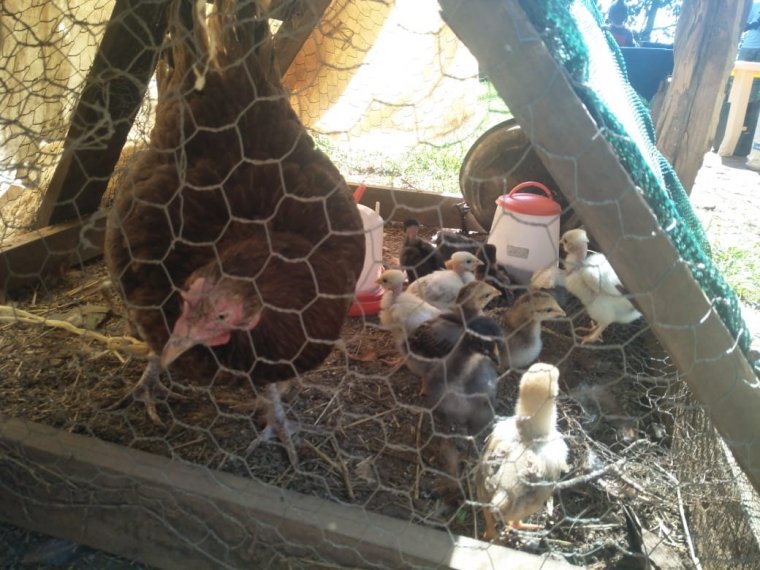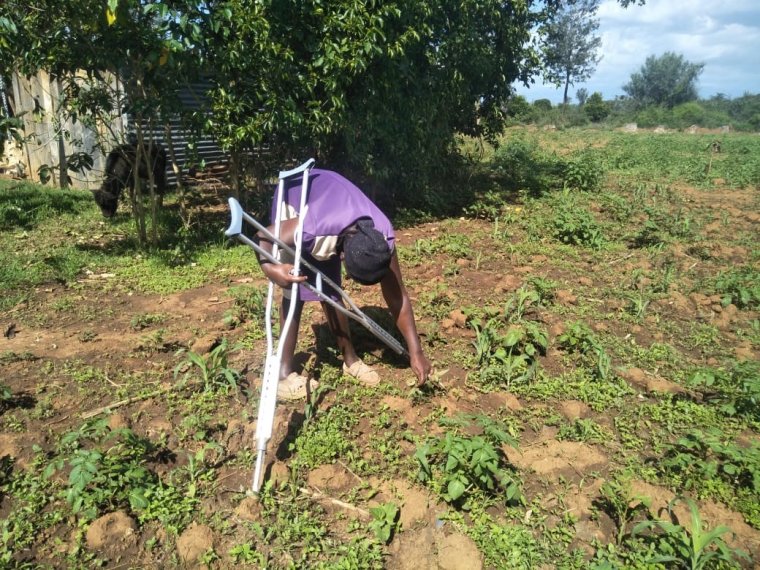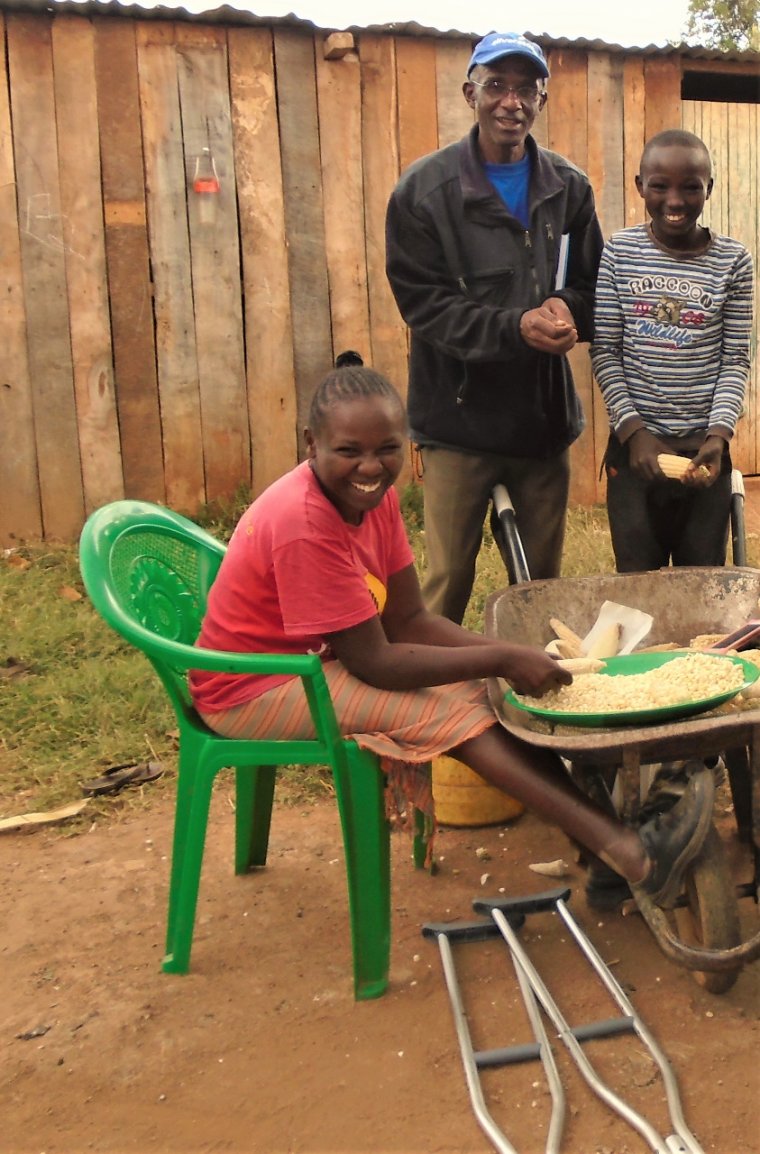Habitat for Humanity Kenya staff recently paid a visit to 35-year-old Faith Warui who hails from Mukima ward in Laikipia North constituency. Faith is a single mother of two and like many other Kenyans she suffered loss of income due to the impact of COVID-19 on the economy. The difficulties were compounded by her physical disabilities. Since the Pandemic’s outset in Kenya, Faith’s elderly mother has had to become the main bread winner for the family as Faith had very little she can do for income. The pandemic reduced a sizable number of Kenyans to-no income, raising the vulnerability levels of most households in the country.
But her tides have been changing. When Habitat for Humanity staff arrived at Faith’s home, she was taking care of her chicks that recently hatched. One of her children was away in school, and her youngest was helping her to feed the chicks while her elderly mother was away.
Faith is among 160 beneficiaries of the Habitat for Humanity COVID-19 response program in Laikipia County. Beneficiaries for the response program are drawn from Habitat’s Vulnerable Group Housing database. Habitat introduced a monthly food grant to the families hardest hit by the ripple effects of the fragile economy. The food grant was given through a series of monthly cash transfers (Kshs 3,000 / USD 30) with the objective of ensuring these families are cushioned from the economic impacts of COVID-19 and at the very least be able to put food on their table. The program was implemented in 6 locations in Laikipia County namely; Muikima, Kariunga, Naibor, Marura, Majengo and Kandutura.
“The first 3000 shillings I ever received from Habitat for Humanity Kenya came at a time when my family was really in need. Most of the money went into buying food,” says Faith.
With a monthly cash flow of the money, Faith used the money to revive her poultry business after she lost over 70 chickens to an outbreak of Newcastle disease that is caused by certain strains of avian paramyxovirus serotype 1 virus. This virus is extremely contagious and harmful to poultry. “After losing the whole stock, I couldn’t provide for my family anymore. This forced me to rely on my mother who is a casual laborer. It was also not easy for her since most farms closed up due to COVID. It was a big struggle for us,” Faith said.
She however bought 12 mature chickens for start-up and today she has more than 30 chickens in different maturity stages. During our visit, she had some 10 chicks that had just hatched.
Faith used the rest of the money to venture in organic farming. She farms potatoes and fruits and has hired a farmhand who assists her with the whole project which she says provide enough to sustain her young family. Sometimes she trades in chicken or eggs with the farmhand to till her land. With the rainy season almost at hand, Faith is confident that her land will be able to produce enough not just for her family but for sale.
Today, Faith can sustain herself and her mother and does not have to rely on her mother.
“I thank God I am back to my feet although not fully. At the moment I can ascertain that I am self-reliant. The poultry project is generating income and has been helping me get enough money for my family’s upkeep,” says Faith.



